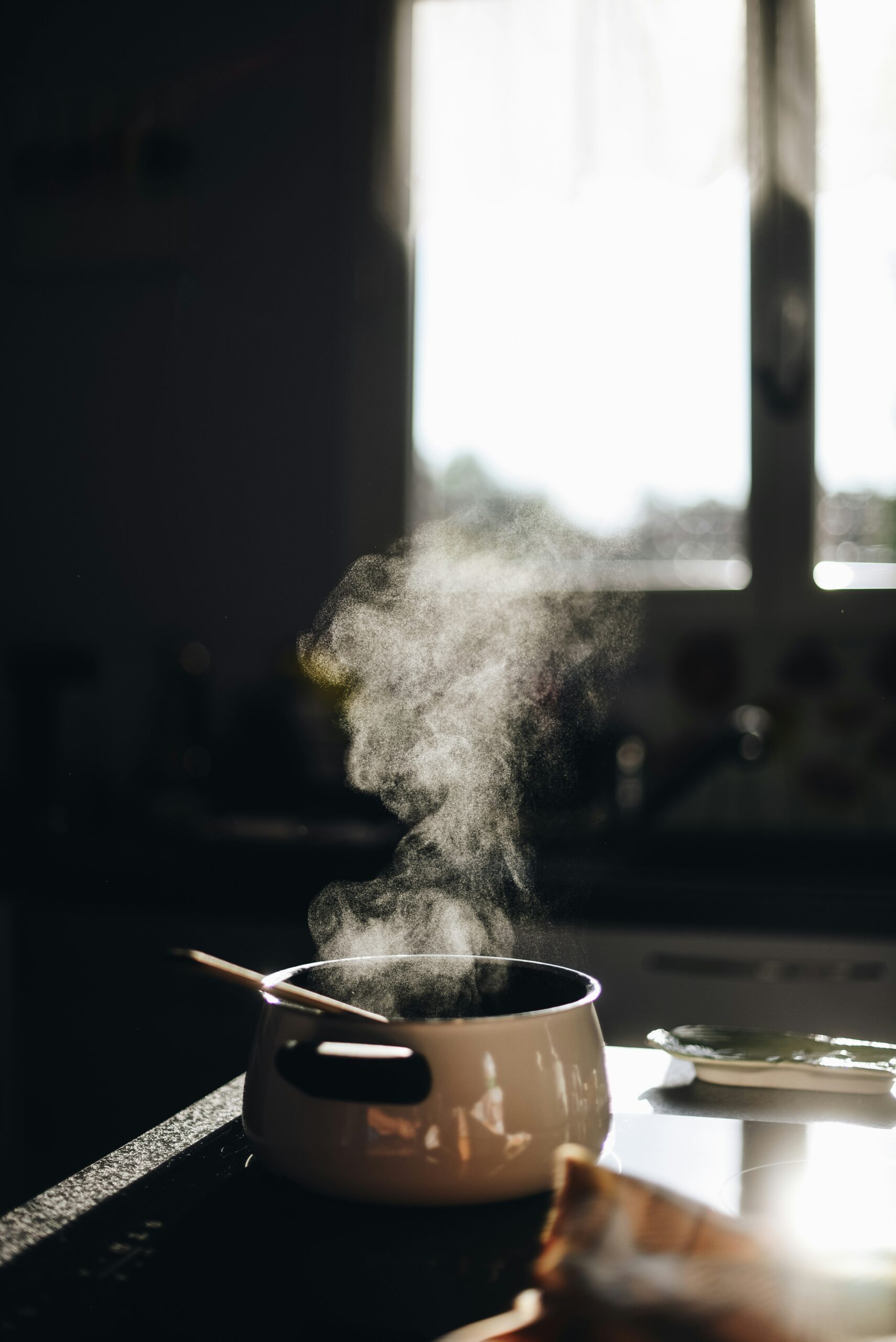Boiling is a foundational cooking method that forms the basis of numerous recipes. It goes beyond merely submerging ingredients in hot water; it is a culinary art that, when mastered, can elevate your cooking skills to a new level. In this gastronomic journey, we will delve into the science, tools, and techniques associated with boiling. We will also explore a selection of delectable and flavorsome recipes that demonstrate the versatility of this cooking method.
Craving a Classic? Learn how to boil hot dogs to Perfection!
Mastering the Basics of Boiling
The Science Behind Boiling
Boiling involves more than just heating water to a vigorous boil; it is a delicate interplay of heat, water, and time. Understanding the science behind boiling is vital. The boiling point of water changes with altitude and pressure, which can affect cooking times. Therefore, before embarking on your boiling adventure, consider the altitude of your location and how it might impact your recipes.
Essential Boiling Equipment
Before we dive into the world of boiling, let’s discuss the tools you’ll need. A quality pot or saucepan is indispensable. Look for pots with thick, even bottoms that distribute heat uniformly. Materials like stainless steel or copper are excellent choices. Don’t forget the lid – it traps heat and helps maintain the boil.
Perfecting Your Boiling Techniques
Achieving the Perfect Boil
There are two primary types of boils: the rolling boil and the simmer. Each serves a specific purpose. A rolling boil, characterized by vigorous bubbling, is ideal for rapid cooking tasks such as boiling pasta. In contrast, simmering involves gentler bubbles and is best for slow-cooking and reducing sauces. Knowing when to use each technique is crucial for achieving your desired culinary outcomes.
Timing Is Key
Timing plays a critical role when it comes to boiling. Whether you’re boiling pasta, eggs, or vegetables, precision in timing is essential. Overcooked food can become mushy, while undercooked food may pose health risks. To ensure you get it just right, keep a reference guide for the cooking times of common ingredients readily available in your kitchen.
The Art of Flavoring
Boiling doesn’t have to result in bland dishes. It’s a fantastic opportunity to infuse your food with flavor. You can add herbs, spices, and seasonings directly to the boiling water to create a flavorful foundation for your dishes. Experiment with various combinations to discover your favorite flavors, whether it’s a simple blend of bay leaf and peppercorn for a fragrant broth or an array of aromatic spices to enhance your soup.
Exploring Flavorful Boiled Dishes
Classic Chicken Soup
Few dishes embody the comforting essence of boiling as well as a classic chicken soup. To create a rich and hearty broth, simmer chicken, vegetables, and aromatic ingredients together. The longer the simmer, the more profound the flavors become. You can add noodles, rice, or matzo balls for a fulfilling meal.
Perfectly Poached Eggs
Poaching eggs might appear daunting, but with practice, it’s a technique that can be mastered. Start with simmering water to which you’ve added a splash of vinegar. Create a gentle whirlpool in the water and gently slide in your cracked egg. The swirling water helps the egg whites envelop the yolk, resulting in a perfectly poached egg. Serve it on toast with a drizzle of hollandaise sauce for a delightful breakfast or brunch.
A Colorful Medley of Vegetables
While boiling vegetables might seem mundane, it’s a versatile method for crafting vibrant and nutritious dishes. Blanching, a quick boil followed by an ice bath, preserves the color and texture of vegetables. Try blanching a colorful assortment of broccoli, carrots, and snap peas, then toss them with a light vinaigrette for a refreshing side dish.
Achieving the Ideal Pasta Texture
Boiling pasta may seem straightforward, but there’s an art to achieving the ideal al dente texture. Boil the pasta in well-salted water, and remember to reserve some of the cooking water before draining. This starchy liquid is your secret weapon for creating silky sauces. Experiment with different pasta shapes and pair them with diverse sauces, from a simple tomato basil sauce to a creamy Alfredo.
Frequently Asked Questions and Answers
FAQ 1: How does altitude affect boiling times?
Answer: At higher altitudes, water boils at a lower temperature, which can necessitate adjustments to cooking times. You can consult a cooking altitude chart as a reference.
FAQ 2: Can you reuse boiling water for multiple dishes?
Answer: It’s advisable to use fresh water for each dish, as reused water may contain impurities and flavors from prior cooking.
FAQ 3: How can I prevent overboiling and food sticking to the pot?
Answer: Regularly stirring food can prevent sticking, and using a timer can help you avoid overboiling.
FAQ 4: Are there any tips for boiling eggs to different levels of doneness?
Answer: Certainly, timing is key. Soft-boiled eggs require about 4-5 minutes, medium-boiled eggs need 6-7 minutes, and hard-boiled eggs typically take 9-12 minutes.
FAQ 5: What is the secret to perfectly boiled vegetables?
Answer: Blanching vegetables briefly in boiling water and then transferring them to an ice water bath helps maintain their color, flavor, and texture.
In conclusion, boiling is a fundamental culinary technique that every home chef should strive to master. By comprehending the science, selecting the right tools, and honing your boiling skills, you can create flavorful and satisfying dishes that will impress your taste buds. So, don your apron and chef’s hat, and let’s embark on a journey of culinary mastery through the art of boiling!
